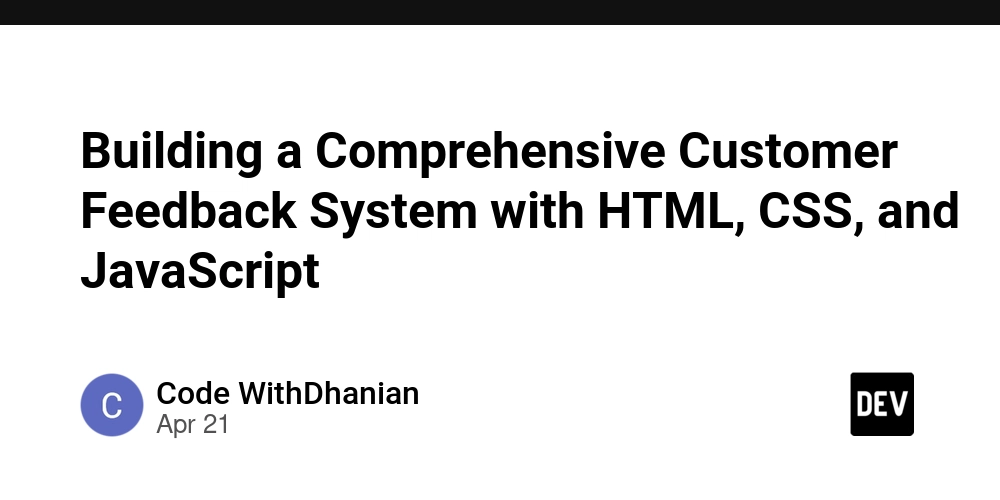A Curated Repository of Early C# Algorithms for Technical Interviews
Collection of Basic C# Algorithms is a focused, practical repository designed to assist developers — particularly junior and mid-level professionals — in preparing for technical interviews that involve algorithmic problem-solving in C#. This collection emerged from personal experience and professional necessity. It serves as a foundational resource for those who may not have received formal training in data structures and algorithms, yet frequently encounter algorithmic challenges during interviews for roles that do not require algorithmic problem-solving as part of day-to-day responsibilities. These are not optimal solutions, but solutions optimized for beginners who may find it easy to think in simpler, yet more verbose terms. Motivation and Purpose The motivation behind this repository was twofold: To reduce signal noise: Developers preparing for interviews often face an overwhelming volume of information, with algorithm repositories offering hundreds of problems of varying relevance or complexity. This project aims to distill the essentials — the most frequently asked, straightforward algorithmic questions — and present them clearly in C#. To support self-taught developers: Many developers come to the field through nontraditional paths. This repository provides them with an accessible point of entry into algorithmic thinking, aligned with industry expectations. Target Audience Junior to mid-level developers preparing for interviews Developers transitioning into more technical or algorithm-heavy roles Individuals without a computer science background seeking structured, minimal examples of classic problems Interviewees applying to companies that require a basic proficiency in algorithms without expecting advanced computer science knowledge Selected Examples Below are three representative algorithms from the repository. Each example demonstrates core algorithmic reasoning and is implemented in clear, idiomatic C#. 1. Reverse Words in a String public static void ReverseWordsinaString() { string input = "Hello World"; string[] words = input.Split(' '); Array.Reverse(words); string reversedString = string.Join(" ", words); Console.WriteLine(reversedString); } Use Case: Reverses the order of words in a given string (e.g., "hello world" becomes "world hello"). Concepts Reinforced: String splitting, array manipulation, and use of Array.Reverse. 2. Check if a String is a Palindrome public static void IsStringPalindrome() { string input = "racecar"; input = input.Replace(" ", "").ToLower(); string reversed = ReverseString(input); bool isPalindrome = input.Equals(reversed); if (isPalindrome) { Console.WriteLine("The string is a palindrome."); } else { Console.WriteLine("The string is not a palindrome."); } } // Helper method to reverse a string static string ReverseString(string s) { char[] charArray = s.ToCharArray(); Array.Reverse(charArray); return new string(charArray); } Use Case: Checks whether a string reads the same forwards and backwards. Concepts Reinforced: String normalization, helper methods, conditionals. 3. Checking for Prime Numbers public static void IsIntPrime() { int number = 17; // Replace with the positive integer you want to check bool isPrime = IsPrime(number); if (isPrime) { Console.WriteLine($"{number} is a prime number."); } else { Console.WriteLine($"{number} is not a prime number."); } } static bool IsPrime(int n) { if (n

Collection of Basic C# Algorithms is a focused, practical repository designed to assist developers — particularly junior and mid-level professionals — in preparing for technical interviews that involve algorithmic problem-solving in C#.
This collection emerged from personal experience and professional necessity. It serves as a foundational resource for those who may not have received formal training in data structures and algorithms, yet frequently encounter algorithmic challenges during interviews for roles that do not require algorithmic problem-solving as part of day-to-day responsibilities.
These are not optimal solutions, but solutions optimized for beginners who may find it easy to think in simpler, yet more verbose terms.
Motivation and Purpose
The motivation behind this repository was twofold:
To reduce signal noise: Developers preparing for interviews often face an overwhelming volume of information, with algorithm repositories offering hundreds of problems of varying relevance or complexity. This project aims to distill the essentials — the most frequently asked, straightforward algorithmic questions — and present them clearly in C#.
To support self-taught developers: Many developers come to the field through nontraditional paths. This repository provides them with an accessible point of entry into algorithmic thinking, aligned with industry expectations.
Target Audience
- Junior to mid-level developers preparing for interviews
- Developers transitioning into more technical or algorithm-heavy roles
- Individuals without a computer science background seeking structured, minimal examples of classic problems
- Interviewees applying to companies that require a basic proficiency in algorithms without expecting advanced computer science knowledge
Selected Examples
Below are three representative algorithms from the repository. Each example demonstrates core algorithmic reasoning and is implemented in clear, idiomatic C#.
1. Reverse Words in a String
public static void ReverseWordsinaString()
{
string input = "Hello World";
string[] words = input.Split(' ');
Array.Reverse(words);
string reversedString = string.Join(" ", words);
Console.WriteLine(reversedString);
}
Use Case: Reverses the order of words in a given string (e.g., "hello world" becomes "world hello").
Concepts Reinforced: String splitting, array manipulation, and use of Array.Reverse.
2. Check if a String is a Palindrome
public static void IsStringPalindrome()
{
string input = "racecar";
input = input.Replace(" ", "").ToLower();
string reversed = ReverseString(input);
bool isPalindrome = input.Equals(reversed);
if (isPalindrome)
{
Console.WriteLine("The string is a palindrome.");
}
else
{
Console.WriteLine("The string is not a palindrome.");
}
}
// Helper method to reverse a string
static string ReverseString(string s)
{
char[] charArray = s.ToCharArray();
Array.Reverse(charArray);
return new string(charArray);
}
Use Case: Checks whether a string reads the same forwards and backwards.
Concepts Reinforced: String normalization, helper methods, conditionals.
3. Checking for Prime Numbers
public static void IsIntPrime()
{
int number = 17; // Replace with the positive integer you want to check
bool isPrime = IsPrime(number);
if (isPrime)
{
Console.WriteLine($"{number} is a prime number.");
}
else
{
Console.WriteLine($"{number} is not a prime number.");
}
}
static bool IsPrime(int n)
{
if (n <= 1)
{
return false;
}
if (n <= 3)
{
return true;
}
if (n % 2 == 0 || n % 3 == 0)
{
return false;
}
for (int i = 5; i * i <= n; i += 6)
{
if (n % i == 0 || n % (i + 2) == 0)
{
return false;
}
}
return true;
}
Use Case: Determines if int is a prime number
Concepts Reinforced: Nested loops and condition checking. General Math.
Project Philosophy
This project was developed as a precursor to more formal study in data structures and algorithms. It reflects both practical interview experience and a desire to support developers at transitional points in their careers. Each algorithm is designed to be immediately understandable and directly relevant to common screening questions.
Rather than aiming for academic completeness, this collection prioritizes relevance, clarity, and working solutions. The implementation style is intentionally straightforward, prioritizing readability and accessibility over optimization or cleverness.
Explore the Repository
You can view the full collection here:
 tigerbluejay
/
CollectionofBasicCSharpAlgorithms
tigerbluejay
/
CollectionofBasicCSharpAlgorithms
Common Basic Algorithms used in interviews related to C# positions - From Basic Sorting to Anagrams
CollectionofBasicCSharpAlgorithms
Collection of Basic C# Algorithms is a curated repository featuring fundamental algorithm implementations written in C#. It serves as a practical reference for developers seeking to understand core algorithmic concepts through concise, well-organized examples. Covering a range of topics from sorting and searching to recursion and string manipulation, this collection is ideal for beginners looking to strengthen their problem-solving skills or for experienced programmers needing quick access to foundational C# algorithm patterns.
If you find the repository helpful in your own preparation or mentoring, consider:
- Starring the repo on GitHub
- Bookmarking or liking this article for future reference
- Sharing it with colleagues or students navigating similar challenges
Your support helps signal that there’s value in concise, beginner-friendly technical resources.

































































